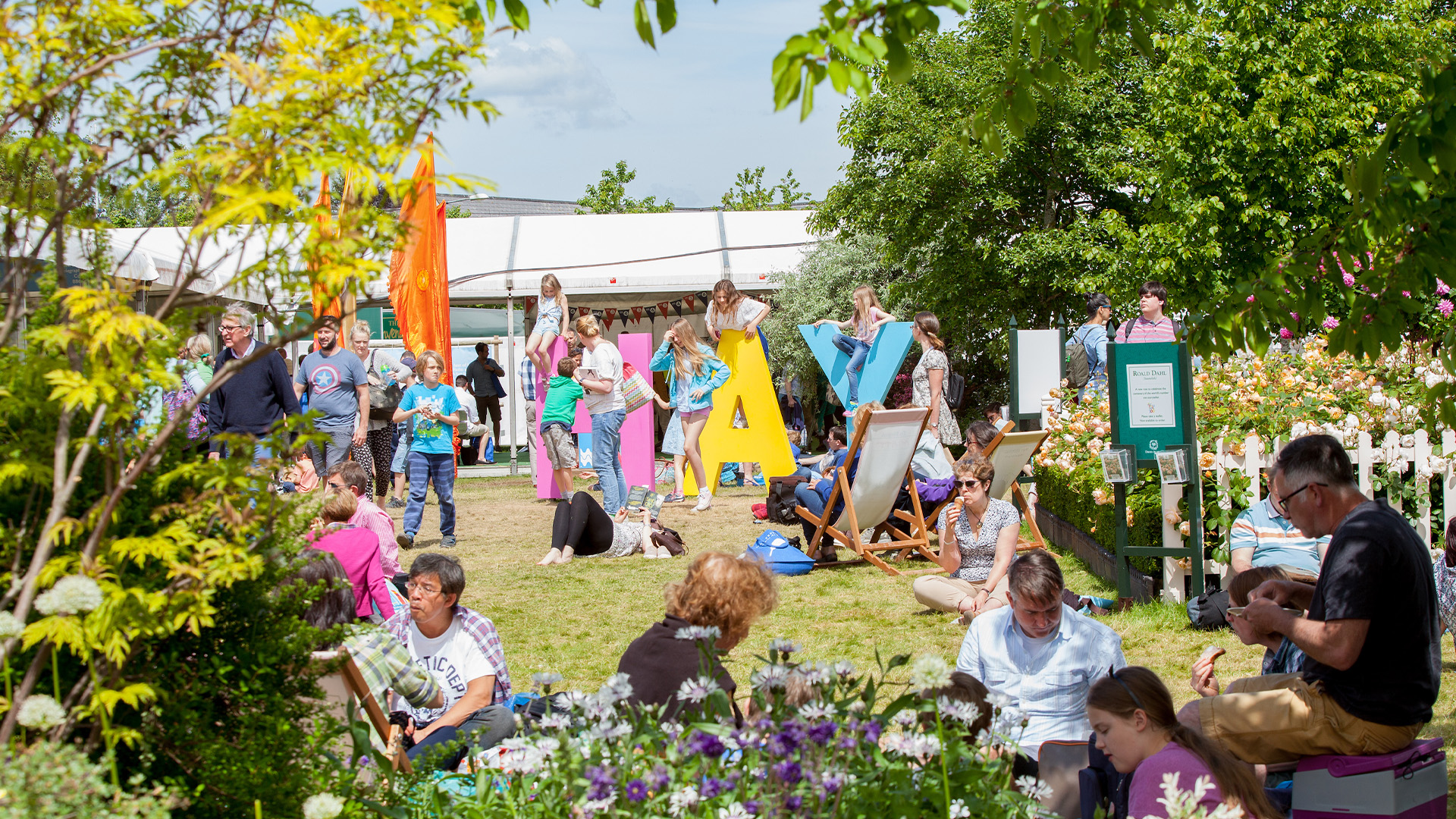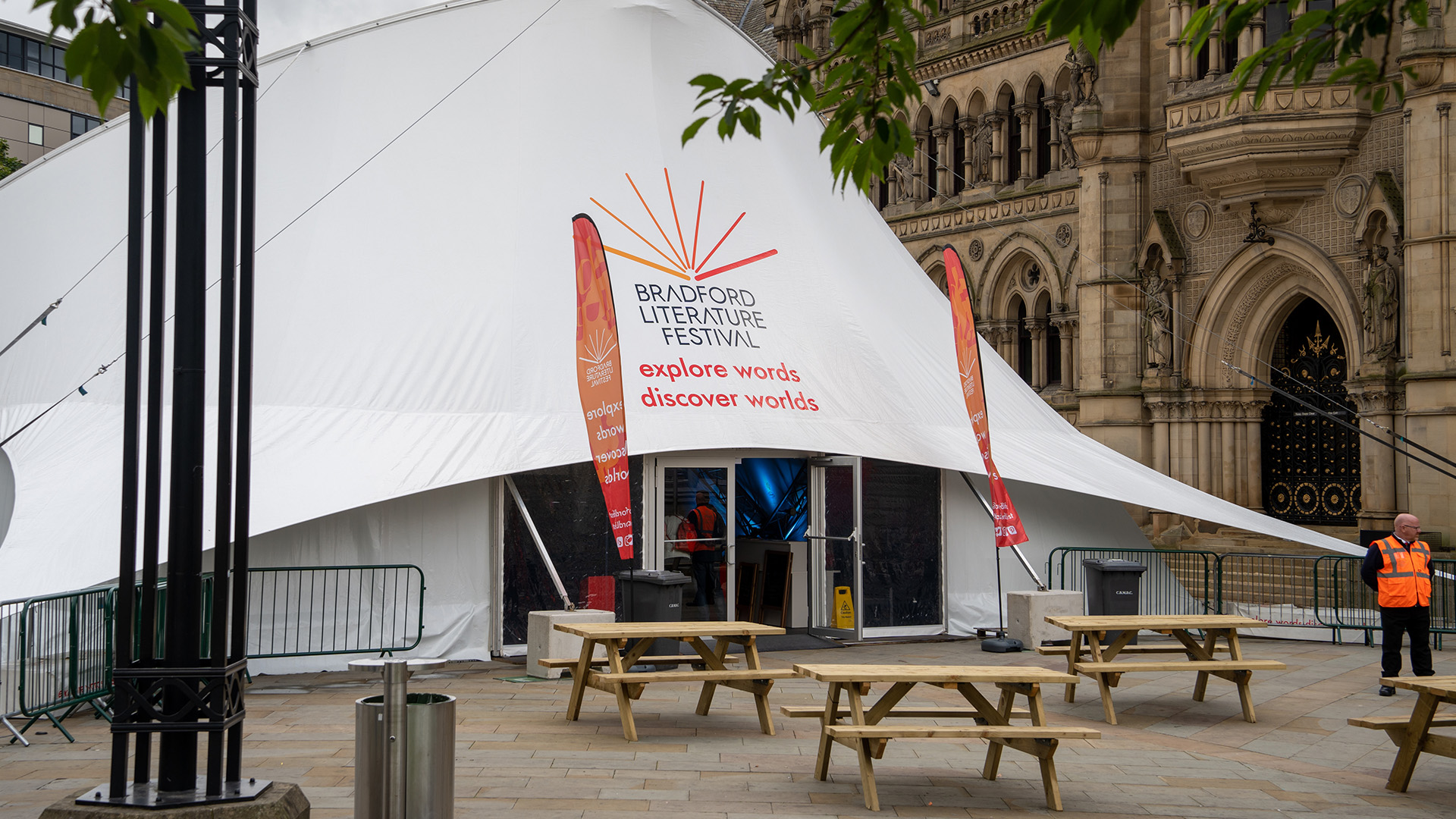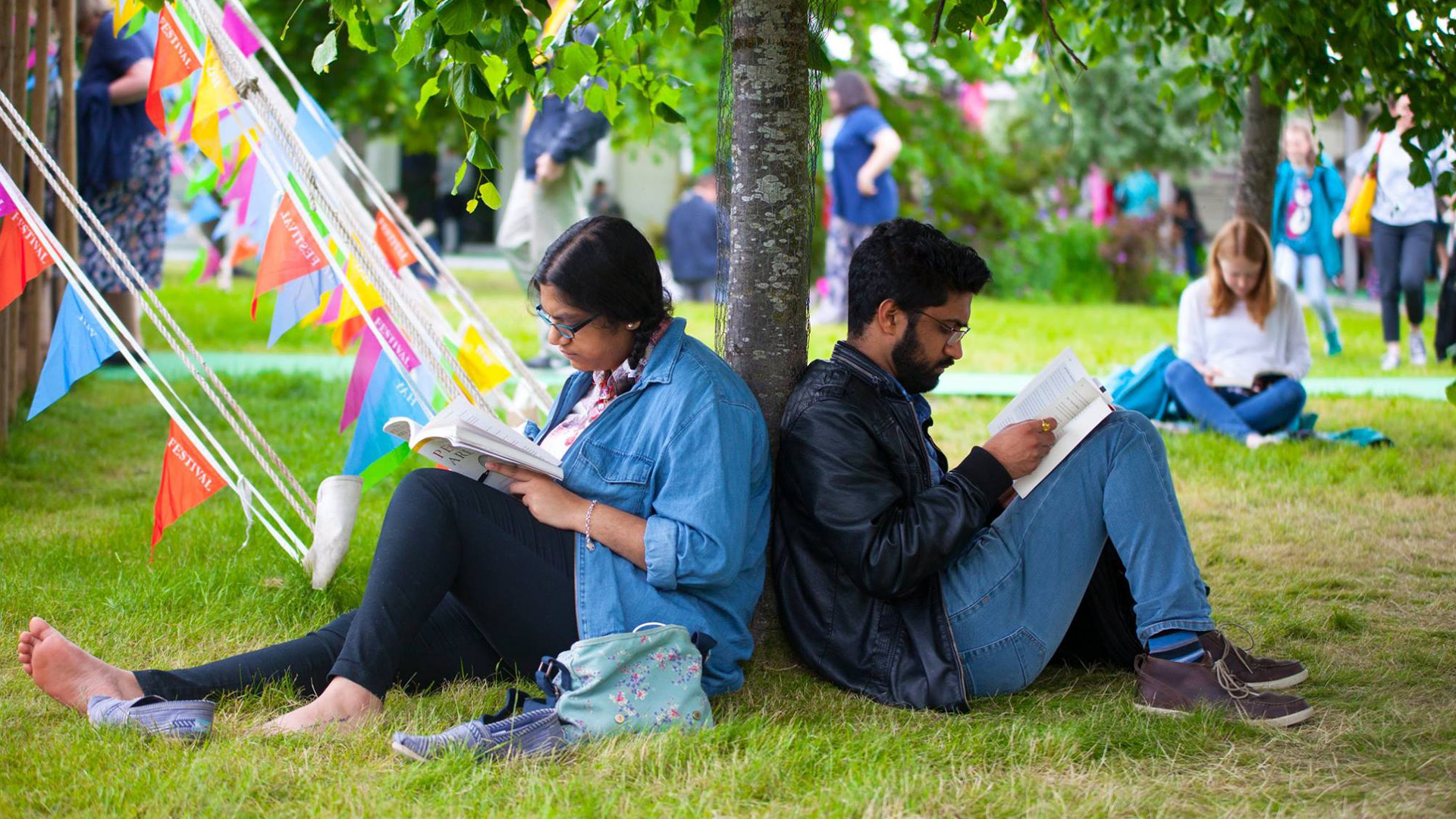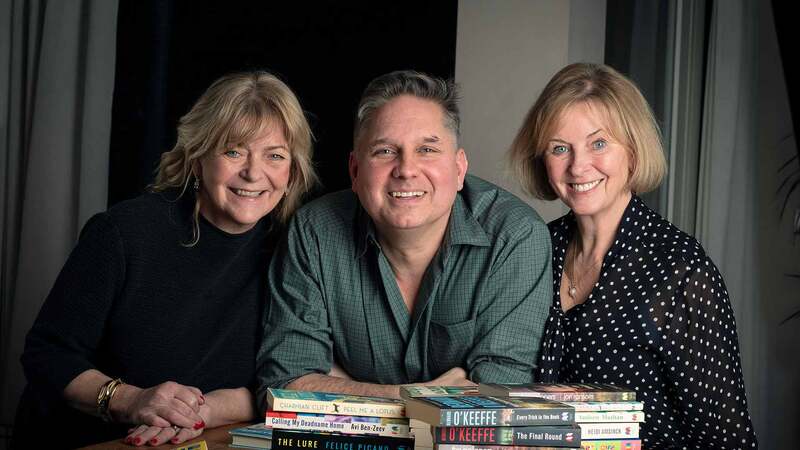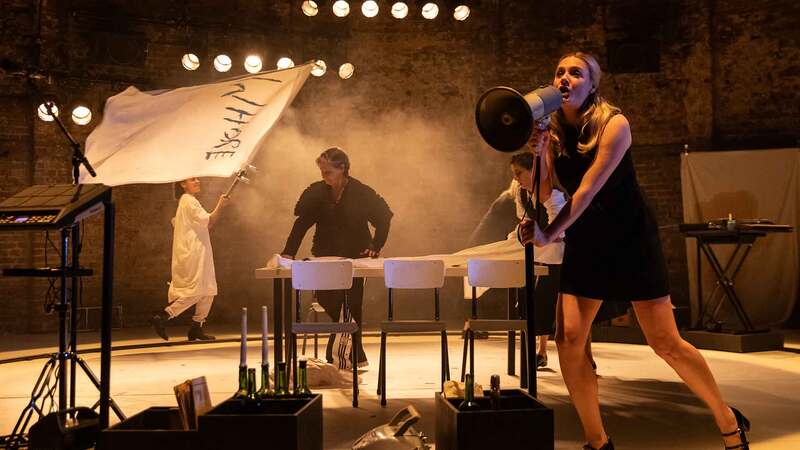You are viewing your 1 free article this month. Login to read more articles.
Festivals boom post-Covid but struggle with big names amid theatre tours
Book festival organisers are reporting difficulties when it comes to booking big names for their events. Are festivals destined to play second fiddle to commercial event companies?

Literary festivals are beginning to flourish again post-Covid, organisers revealed to The Bookseller, but it is harder to attract famous authors as theatre-style tours boom in popularity.
Fears around authors being bound to large venue tours is putting pressure on programmers’ ability to offset costs, threatening the diversity of line-ups as well as the diversity of audiences and festivals’ outreach work. There is also concern about the increased use of book-and-ticket bundling, preferred by many publishers to push sales, which can push ticket prices up beyond an accessible level for many visitors.
Virtually all the festivals surveyed by The Bookseller reported a major uptake in attendance year on year: Cambridge Literary Festival saw footfall rise 66%, Hay Festival’s up 37%, Stratford Literary Festival sold 85% more tickets. Bradford Lit Fest organisers described a “significant increase” in sales against not only 2022 but also 2019, while London’s Stokey Lit Fest sold out of weekend tickets within two hours.
However the rise of theatre-style tours for authors, promoted by companies such as Fane Productions, Live Nation and AEG Presents, means there is concern over pulling in the most famous authors.
Fane does over 300 live events a year, with a mixture of both high-profile and up-and-coming names, and has a free online programme, which comprises over 100 online events a year. It is positioned as “the partner of choice for publishers, authors and podcasters in the UK and internationally”, according to its website, working most often with bigger publishers such as Penguin Random House and Hachette, and with authors such as Tom Hanks and Elizabeth Day.
Some programmers believed companies such as Fane operated exclusivity models with authors, though Fane confirmed to The Bookseller it does not. It added that it "always encourages a holistic approach that combines all areas of the bookselling events industry, often reducing the number of events it does to accommodate this". It pointed out that Day also took part in over 10 festivals this year, including the Henley Literary Fest and Hexham Book Festival.
Cathy Moore, Cambridge Literary Festival director, has found it “dispiriting” being rejected by publishers for big-name authors and then seeing the same writers on tour promotor websites. She said: “The economics of literary festivals is that the sell-out events in our large venues are the ones which allow us to invite the wonderful authors who are less likely to sell a substantial amount of tickets, and we want to have that mix. And it’s becoming more and more difficult to say ‘yes’ to the authors who might only be selling [...] 50, 60, 100 tickets. Because we’re not getting the guaranteed sell-out events.”
It has become increasingly difficult to secure those large-capacity headline names in recent years since the escalation of commercial literary event promotion
— Syima Aslam, Bradford Literature Festival
Headline acts
Annie Ashworth, who programmes Stratford Literary Festival, agreed and was also concerned about publishers’ increasing use of book-and-ticket bundling to drive up book sales. “It’s those events that sell out which feature well-known names that we make some profit on and they help to prop up the rest of the festival,” she told The Bookseller. “And that business model is in danger if those bigger names, who understandably are going to do theatre tours because [...] they probably are getting a much higher fee, choose not to appear at festivals. So it’s an understandable decision but it is quite concerning for programmers.”
Jo James, who freelances for numerous festivals and spoke to The Bookseller in an independent capacity, agreed: “If you look at the [bundling] as a one-off theatre event that’s fine because it’s all that the public is going to in that town. If you look at it in a festival context then audiences will go to multiple events running every day... even if people go to two or three events, with the cost of a hard-back book it takes the ticket price from £10 to £30 instantly. With the cost-of-living crisis, it becomes unobtainable for a lot of people.”
She said of the overall programming experience: “It is harder. I’ve been in the book trade for 32 years now and doing festivals for 12 years and things have changed. Publishers and, to a certain extent, authors think that festivals charge ticket money and get a big fat profit, but festivals actually have massive costs involved.”
Remaining broad
James is concerned that the diversity of festivals will be affected: “Festivals need those big-name, bums-on-seats venue fillers partly to cover the costs of putting the festivals on in the first place, but also they help fund festivals to put on the more interesting but less ‘celeby’ events—so panels on interesting subjects, discussion topics, the things that will get much smaller audiences. It’s really important these discussions happen but festivals can’t do them without the big names. But you get [companies] like Fane creaming off the big names and it’s that much harder for festivals to even exist, or justify putting on all those other events [featuring less well-known authors] which Fane doesn’t have to do. I’m not sure publishers understand you need those big hitters to have the rest happen.”
Kate Abbey, Bath Festivals’ interim head of programming, echoed this: “My experience has been that if an author signs up for a book theatre tour, then a festival pitch isn’t considered.”
She added: “The Bath Festival and Bath Children’s Literature Festival are both built around similar frameworks. Financially and reputationally we rely on booking a number of instantly recognisable names that pull in sponsorship, ticket revenue and publicity that then enables us to offer a platform and space to a huge range of additional writers and performers. The audience are attracted initially to the known, and then enjoy and relish exploring what might be new to them. It means that we can experiment, take risks and build relationships with début and rising stars, or explore more niche subjects to open up important conversations, drive diversity and inclusivity and reach as many Bath residents and visitors as possible.”
Syima Aslam, c.e.o. and artistic director of the Bradford Literature Festival, agreed: “It has become increasingly difficult to secure those large-capacity headline names in recent years since the escalation of commercial literary event promotion. Festivals rely on a relatively small pool of big-name authors to draw attention to their programmes and support emerging talents who are, of course, the big names of the future. If that small pool of authors are tied into exclusive deals and national tours, they are less likely to do the festival circuit, which has a measurable impact on festival audiences.”
Aslam, like many of the event organisers who spoke to The Bookseller, is keen to see a better working relationship between tour promoters and festivals. “I hope that as the literature events industry settles into the relatively new model of literature event promotion, we will see tour promoters collaborating more with festivals, both during their festival period and for one-off, year-round events. This has the potential to support the delicate literature festival ecosystem, and provide wider and more diverse audiences for the events.”
A changing sphere
Many of the programmers who spoke to The Bookseller also acknowledged the pressure publishers and publicists are under, as well as praising the ingenuity of companies like Fane. Fane declined to comment beyond confirming it does not use exclusivity contracts with authors. Since 2022 it has offered its online programme free of charge and since last February it has expanded its partnership with Black-owned publisher Jacaranda through events and direct-to-consumer offerings.
None of the publishers contacted by The Bookseller responded with a comment bar Pan Macmillan. Emma Bravo, communications director at the publisher, said: “We focus on how to balance the many requirements and demands of authors and events. We want to ensure our key retailers and indies are able to host events that will support their passion and word of mouth, that festivals and their audiences remain a cornerstone throughout the literary year and that authors are able to capitalise on the live events that the publication of a book offers. It can be a challenge to ensure we manage this, but it remains a continual aim of our publicists and events team.”
A discussion “What’s happening with literary events?” will take place at The Bookseller’s Marketing & Publicity Conference.




